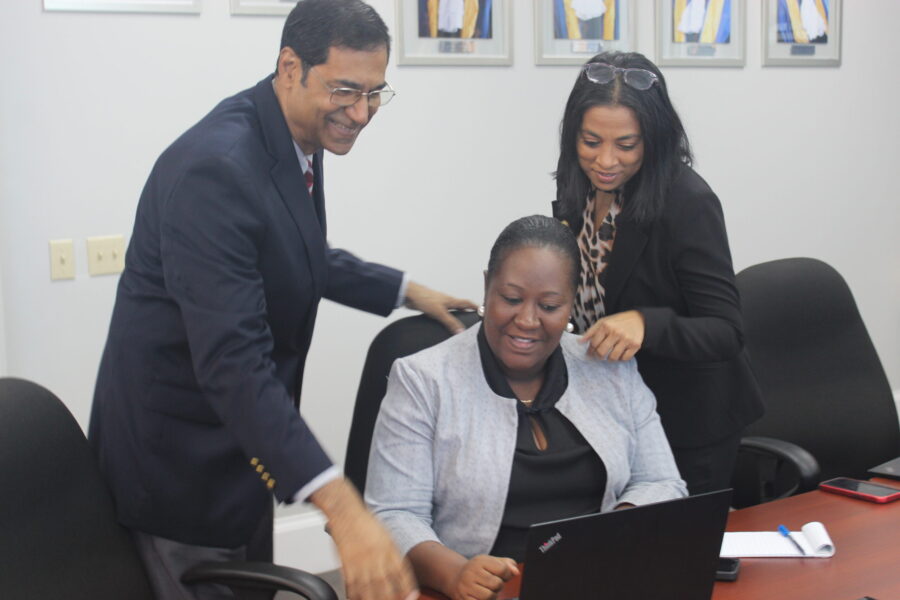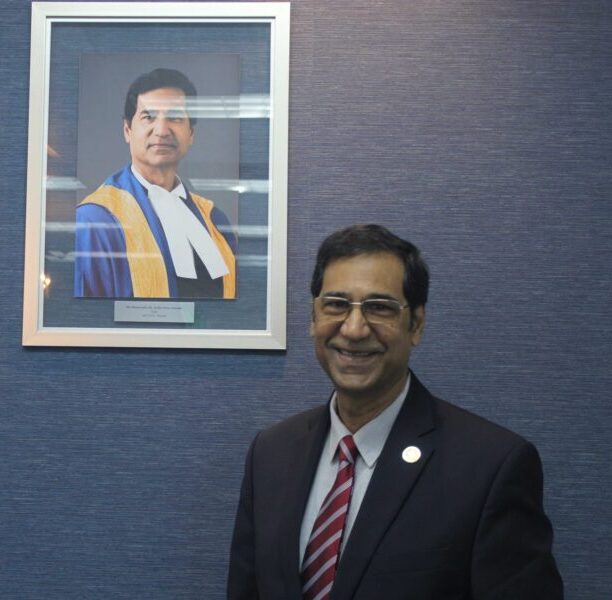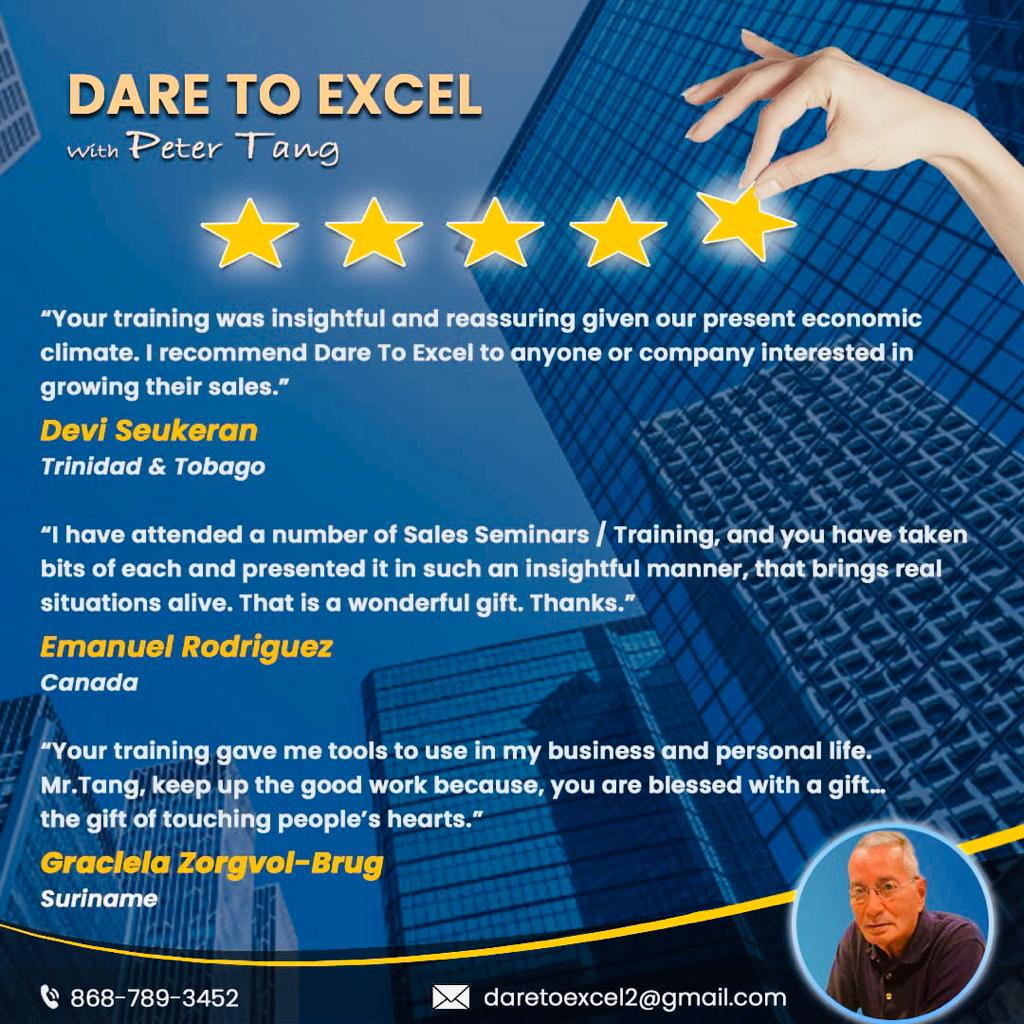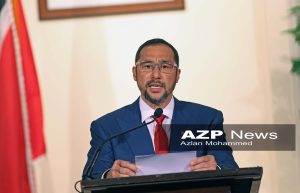JUSTICE Peter Jamadar, a judge in the Caribbean Court of Justice, was recently conferred with an Honorary Doctorate in Divinity from Emmanuel College in Canada. This is after he matriculated for a Masters in Divinity years before in the same university. Two Fridays ago he sat down with AZP News Editor-in-Chief Prior Beharry at the CCJ’s offices in Port of Spain, Trinidad, and spoke about many issues including how he went into law, the need to get rid of the Privy Council as the final appellate court for many CARICOM countries, how academics have always been part of his life and that he did not have the stomach for criminal law after his client hanged himself in prison.
See interview below:
PB: Justice Jamadar, you come from a family of lawyers stretching back three generations. Was it therefore natural for you to become an attorney?
PJ: It may surprise you but the answer is, no. Yes, I come from a family of lawyers stretching back generations, beginning in 1929. And most people expected that I would become a lawyer, but actually, I went to Presentation College (in San Fernando) and I did zoology, chemistry and physics at A Levels. And I think my parents’ intention was to follow in my older brother’s footsteps and do medicine.
But after A Levels I wasn’t quite sure what I wanted to do. And my father told me that law was being done at Cave Hill in Barbados and it was the enticement of Barbados that encouraged me to do law.
PB: Was it a different mindset? You coming from a science background? How was that transition?
PJ: It wasn’t difficult for me because science is very logical and very systematic and so is law. And I have always been an avid reader when I was at Presentation in secondary school. In fact, what was written about me in the student journal was that you can find Peter in any corner having a deep philosophical conversation.
So reading was never an issue for me and reading material that could be deep or difficult was never a problem. So, no, the transition was not difficult.
PB: You said your brother is a doctor? How many siblings do you have?
PJ: Two, an older brother who is a professor of medicine at the University of Michigan in Ann Arbor and a younger brother who did law, and is now a federal judge in the United States.
PB: Their names?
PJ: My older brother is David Jamadar and my younger brother is Richard. Just three boys. I’m in the middle.
PB: And your parents’ names?
PJ: Vernon Alexander Jamadar. He was an attorney also and former leader of the opposition, a politician with the Democratic Labour Party back in the day. My mother Mona Jamadar nee Khan was an educator, and worked all her life at Naparima Girls’ (High School) retiring as vice principal.
PB: So would you, therefore, say that academics run in your veins?
PJ: It was expected. Like so many people like me, that was the expectation in my own family, my father, did his law degree in England, as is customary, my mother quite exceptionally for her time went to Wales – University of Bangor and did her BA in Literature and then when she came back, she went to Jamaica, Mona to do her DipEd. So, yes, we’ve always had in our immediate family, an inclination to education but in our broader family, my brother, my father’s siblings were lawyers, my mother’s oldest brother was a dentist.
PB: Your grandfather was also a lawyer?
PJ: My great uncle Alexander Jamadar. Yes, and he actually did his LLB in Detroit and then went to England, Lincoln’s Inn to become a barrister.
PB: Did he or your father influence you at all?
PJ: Yes, they tried. I mean we grew up listening to stories. And so when I would go over to Alexander Jamadar, it would be all these stories of what happens in the courts and all of that.
I heard the stories, but I can just say influence is, I think, Barbados initially influenced me more than law as surprising as that may be.
PB: When you say Barbados. Why?
PJ: The idea of the island, the water, the sunshine. I was a young man.
PB: Do you go back?
PJ: Yes, I have been back many times. I still enjoy Barbados. Now I go back in a professional capacity. I assist with the training of judicial officers in Barbados and throughout the region now.
PB: And when you became a lawyer. What was your speciality? Was it criminal? Was it civil?
PJ: When I came back, I did everything. That was my father’s approach, do everything. So I actually started in the Magistrates’ Court. Doing magisterial work and doing petty civil work. I did some Assize work and what created anecdotally the transition in my life was a case we did.
We were doing a murder trial, my father and I, and it’s a very sad story. The accused on the day that Common Entrance results had come out had cut the throats of two young boys who had just finished Common Entrance. He was a person, a Trinidadian and Tobagonian, who had returned from New York. But he had mental health issues, he was actually schizophrenic and in the course of the trial, we agreed with the prosecutor that we would admit the medical evidence from the New York hospital and when it came to the point to admit the evidence the prosecutor did not hold by the agreement we had.
The evidence was never admitted, and in fact, he was convicted of murder and sentenced to be hanged.
We made a plea to the judge in writing that he be committed to (the mental hospital at) St Ann’s. The judge declined.
In all of this, I am not going to call the names of these people, but all of this because the community in San Fernando was extremely incensed because of the gruesome nature of the murder.
The young man sentenced went to prison and hung himself using a wire hanger and died.
He should never have been committed for the death penalty. He should have been committed to St Ann’s. It’s no question he was mentally ill and suffered from schizophrenia.
PB: And that had a great impact on your life?
PJ: Absolutely. With the verdict and I got physically ill for three days.
PB: How old were you?
PJ: I must have been 24/25, just come out (as a lawyer). And I recognised then that literally, I didn’t have the stomach for criminal law and that is what influenced me to go into civil, that has been my area.
PB: You didn’t spend much time in practice and you became a judge. What made you want to go on the Bench?
PJ: That’s another story that may be interesting. After about 12 of the 13 years in practice I decided to go to the University of Toronto to do my Master’s in Divinity. And to do that I was an international student. I wanted to find myself, it’s very expensive. So I sold everything I had and went to Toronto – three years to do the Master’s in Divinity.
When I came back, I no longer had a practice and at the time there was a new chief justice Michael de la Bastide and I received word that he was looking for judges.
When I had left to embark on my divinity studies, I was doing reasonably well and had a pretty good reputation as a lawyer and so a friend of mine Wendell Kangaloo in whom I was in partnership with in a law firm, when I left, he closed the law firm and he became a judge. He said to me are you interested? Make an application and basically my position was but I have nothing to do and so why not?
And I made the application, I was selected. So, once again, this may be very disappointing, but there was no great, you know, purpose or intent, I had come back. I was sort of looking for something to do, the opportunity presented itself and I applied and the rest is history.
PB: You have always been close to Justice Kangaloo until his passing?
PJ: Oh yes, exceptionally close. His family and my family were family friends in San Fernando. His father Carlyle, the mayor of San Fernando was a solicitor. My father was on the other side of the (political) divide.
Carlyle was with the PNM, my father was with the DLP.
PB: But they were friends?
PJ: Those things in those days did not divide people and families. We did many things together. When I was studying in Barbados, I actually lived with Wendell, we roomed together and then we came back into practice and we created a law firm Kangaloo and Jamadar together.
PB: Did his passing have an impact on you?
PJ: Oh absolutely, yeah, Wendell was an exceptionally bright professional, close friend of mine and it was a great tragedy. Something I’ve still not really come to terms with.
PB: You said you did your Master’s in Divinity? You were a lawyer. Could I say that you had that calling to go into the clergy?
PJ: No, no. I did not have any calling to go into the clergy. My life is not motivated by callings. Things happen and I follow leads. That may sound, again, a little strange for you, but it’s true.
PB: It could be the divine hand?
PJ: I will tell you a story again and you make of it what you wish. I had gone to Susamachar (Presbyterian) Church on Christmas morning as was our custom, early in the morning. And the minister you may recall was Reverend (Cyril) Paul, now deceased, and he preached a sermon – No Room in the Inn – and the intention of the sermon was basically that, people get so busy in their lives doing their work and everything that they have no time and place for God.
And that struck home for me as absolutely true in my case. I was a young lawyer who was quite successful. I was doing well financially but I had no room in the inn.
Now, I need to tell you that when I was a young man at Presentation College, I had gone into the Presentation Brotherhood for a while. And then after that, when I finished my degree, I went to Mount St Benedict for a little while because I’ve always been a searcher, exploring.
PB: Were you Catholic then?
PJ: No, no. I have always been Presbyterian. I have always been open-minded. My family on my mother’s side, my maternal grandmother was a Presbyterian who was married to a practising Muslim, hence the name Khan. On my father’s side, his father was a Muslim and his mother was a Hindu. So that I have grown up with a very open, inclusive approach.
PB: Would you say that that is a reflection of Trinidad and Tobago society? The mixture of cultures, of races?
PJ: Yeah, absolutely.
PB: And you think that that has helped you on the Bench?
PJ: Certainly, my starting point is openness to diversity, to be inclusive, to be respectful of all people. And I know that from my live experience. So that I have a deep regard for all people, all traditions, all ways of thinking.
PB: After the sermon, No Room in the Inn, you felt it necessary to go and explore your spiritual side?
PJ: It threw me into an existential crisis and interestingly, I went to a Presbyterian minister because as you may know in Trinidad there is a Presbyterian theological college – St Andrews. And so I went and I said, ‘You know, I need to know once and for all, when I was younger I had made these little forays, but I need once and for all to kind of scratch this itch.’ And, he said to me, ‘Don’t go to St Andrews. Go to Emmanuel College, University of Toronto,’ and I said, ‘Well, alright.’ I was following the lead. You may say how it was the Divine hand but I followed the lead of what was within me and I applied, I got through, I got through everything, I was accepted and then I had to fund it.
I did not want to ask my parents for any help at that time, so I funded it myself.
PB: Why did he recommend you go to Emmanuel College?
PJ: I have no idea, what he said to me was this, he said, ‘For your development, you need to go to the University of Toronto, St Andrews will not give you the breadth and depth of information and exposure that you need.’
I told him my story and that proved providential and true, not that I wouldn’t have done well at St Andrews, but certainly in Toronto my exposure was diverse and inclusive and nourished me in that regard.
PB: We always hear this saying, render onto Caesar’s what is Caesar’s and to God, the things that are God’s. How do you distinguish between being a judge, having a Master’s in Divinity, being a very religious person? Or do you not have to distinguish?
PJ: There’s nothing for me to distinguish. At the heart of religion as I understand it, is a deep regard for every human being, right?
And whether you place that on a spiritual basis or not, when you come into law the whole idea of Human Rights is about a deep regard for humans.
So for example, Article 1 of the Universal Declaration of Human Rights which was, as you may know, was passed since 1948 just after World War II, it says all humans are created equal in dignity, rights and freedom.
If you transpose that and you put it in a religious context, what does it mean? It means that all of creation is good and that is at the heart of all religious traditions.
So that there has never been a conflict for me, there’s never been a sort of a challenge to reconcile. What I do not do is impose religious beliefs.
But, my religious values, that is to say, regard for all people, all creation, my sense of inclusivity, my sense of respect, those are common in the law.
PB: You were an appellate judge of Trinidad and Tobago. You are now in the Caribbean Court of Justice. Why did you leave T&T to go to the CCJ?
PJ: You know and you will hear, you will see this resonating, there are no good profound reasons for some of these shifts. I respond. This is how I live my life and I very much respond to what I feel within me.
So that when I started this little journey we spoke about from science into law; inducement was Barbados, but I felt it within me. I followed it.
When I felt that I should stop law and do the M.Div, in a sense it was irrational, a lot of people counselled me, why do that? Why give up everything and lose everything that you’ve invested so much into that?
I felt I should. I did.
It was no different with the CCJ. I had reached a point in my life where I felt that it was time for a shift.
I had again, you will see, punctuated throughout my life story, what I call intersections of salients.
Things that happened, what people, other people, see as coincidences I don’t see as coincidences, I see them as intersections of salients.
And so I had a conversation at the time with (former president of the CCJ) Sir Dennis Byron and another one of my mentors Justice Oxner.
And they said to me, ‘Peter have you considered the CCJ and I said to them, ‘They’re not going to consider me, you know what I mean? Why would they consider me?’ And they both said, ‘Peter, you have all the qualities, make an application, there’s no guarantees, make an application.’
But, here’s a story. I made the application once and was not successful. And I decided that was that. And then very interesting, you may say coincidence, another opportunity arose and Justice Oxner called me and Sir Dennis called and again to say ‘Peter, look, there’s another opportunity, this time. Why don’t you apply?’, I said, ‘I have been rejected once. Why would you want to put me through the shame and humiliation of being rejected twice for my peers to say…Peter, what is this about?’
But something inside of me felt that I should take that risk at the time and I did and I was successful. But again, I have no regrets. It has been only good for me.
PB: Was it a different mindset again?
PJ: Absolutely different because in the legal system, in the judicial system, as you move to different levels, that is, from a first instance, to an appellate judge and now as an appellate judge in an apex court, your perspective changes.
It’s sort of like this. If you are climbing a ladder and you are on the first rung and you look around you, you see a certain amount of stuff, right?
But as you go higher on a ladder and you look around you, you see so much more, very different perspectives and different responsibilities, as a first-instance judge your primary responsibility is to decide this case that is before me to do it effectively, efficiently, in a timely way to do justice between these parties.
When you’re the apex court, because your decisions bind all other courts, a lot of what you think about is the case before you, are you doing justice, but also the implications of the case for the system and for the whole society.
PB: In the recent Local Government case that went to the Privy Council there has been some debate about a majority decision. Do you see issues with majority decisions sometimes?
PJ: The system we run is that of a majority decision.
So, the decisions, for example, about the death penalty cases in Trinidad and Tobago were by a single majority, five to four. But it’s the law. That is because it is democratic, what do I mean by that?
In a true democracy, we respect and regard the views of all, but we also accept that what the majority decides is what will bind us. So that there is no diminution in the authority or value of a majority decision versus a unanimous decision, not in a democratic state.

PB: Well of course that leads me to the next question and the obvious question, CCJ versus the Privy Council. Do you think that the CCJ should become the final appellate court in all instances for CARICOM states?
PJ: Absolutely. There is a lot of talk about it. I think that for myself, there are several reasons why this is so. That is to say why all CARICOM states should come to the CCJ as their final appellate court. They’re out there. There is the sovereignty issue, the completion of the circle of independence issues, there is the indigenous jurisprudence issue.
But, the one reason that I want to speak a little bit about with you, is the benefit to the people.
So, you can have philosophical reasons, in other words as an independent state, we are independent, we are a republic, we need to do this to complete the circle, right?
We can have other reasons, but there is a reason that I think is the most telling reason, how coming to the CCJ benefits ordinary citizens in the region. What do I mean by that?
The statistics from the jurisdictions that have come to the CCJ demonstrate without any question that once states come to the CCJ, the number of appeals to a final court increased significantly.
What does that mean?
It means more citizens have access to justice. Why does a justice system exist? It exists to afford, every pun intended, ordinary citizens access to justice.
The statistical evidence shows that the Privy Council denies citizens access to justice because of geography, cost and other factors.
The CCJ has proven in the region a track record of increased access to justice.
PB: But aren’t some cases to the Privy Council pro bono? Some criminal cases, for example.
PJ: Some are pro bono but you cannot build a judicial system on pro bono. You cannot justify a judicious system on pro bono and if pro bono is the answer, then why are there no more cases going to the Privy Council. What it means is that even with the pro bono, there are still significantly fewer ordinary citizens in the region who have access to their highest court.
That to me is the most important reason, because justice systems exist to serve people and to deliver justice, not to the wealthy. Who can afford to go to the Privy Council? The wealthy. Who can fund Privy Council litigation? The wealthy.
But, every citizen should be entitled to come to the highest court.
PB: Having the CCJ as the final court of appeal, wouldn’t the costs be the same as the Privy Council?
PJ: They’re not. No, no, no. The hard evidence is that the costs are much lower. And there are many reasons for that. Simple reasons. Our fee structure is lower, we’re in the region. For example, we do cases, we sit virtually, you don’t have to go to Trinidad. You don’t have to retain lawyers, you can retain your own lawyers in your own jurisdiction and do your case, right?
PB: Is there an option that you can choose to come here or do your case virtually?
PJ: Yes, you could remain and any matters that come to the CCJ, the cases have been done by attorneys from Barbados, Belize, Guyana, Dominica and they remain in their chambers in the office. It’s like, think about business, if you have a business and you can run your business from home and run it effectively or if you had to run your business here, you have to get airfare to come to the city, the capital, and then rent a space and pay people to do it for you. It’s no different. This is simple economics.
PB: And the quality of the attorneys, are they comparable to the King’s Counsel in England, for example?
PJ: I see no magic in King’s Counsel. King’s Counsel is a title that we have revered because of colonialism. Quality is measured on performance, on intellectual capacity.
Let me answer that question a different way. All over the world Caribbean people have reached the highest levels in all institutions, international, private, commercial, professional.
Why therefore do we even ask whether the quality of our professionals in law is equivalent to King’s Counsel? As if King’s Counsel is something magical. That is an illusion. It’s a myth.
PB: There is a feeling that the composition of the CCJ does not represent the people of the Caribbean – East Indian, indigenous people for example. What is your answer to that?
PJ: Does the Privy Council represent the Caribbean? Let’s start there. Do you know how many people of colour sit on the Privy Council? How many women of colour sit on the Privy Council? How many Caribs or indigenous people sit on the Privy Council, how many?
It’s interesting to me because nobody asked that question about the Privy Council? But you asked the question about the CCJ. Well, hold on. The CCJ is representative. Does it have every single constituency represented? Maybe not. But is it more representative? Absolutely.
What bothers me is that the asking of the question betrays a bias. Why is that question not about the Privy Council? Yet still we want to go there, let me be very banal about it. Is it that deep in our psyche, everything white is better than everything of colour?
But here’s my answer. I think if you were to walk through the Caribbean and all our seas were white and all of our forests were white and all of the birds were white and we lack the colour and texture that are Caribbean, I think that would be a boring world.
I love our complexity, I love our diversity, I love our colours. And I think that enriches us and I think they enrich our jurisprudence.
PB: In terms of migration, T&T is close to Venezuela. Before we had Caribbean people going to America, going to Europe. Now there is an influx in Trinidad and other Caribbean islands. Does the jurisprudence now have to change from a CCJ perspective when it comes to migration? In things that are popping up, like newborn babies, access to education etc?
PJ: Yes because what is law? Law is a response to society. You cannot separate law from society. Law, in fact, doesn’t sort of drop from the heavens down. Law actually is built from the ground up and law has to be capable of being responsive to real needs of real people in changing times.
So if you have new migrant inflows, you, therefore, have changes, you, therefore, have different needs. You have different considerations and eventually, the law is going to have to come to terms with that.
First, maybe in parliaments where laws will be amended to accommodate these changes and these new influxes of migrant cultures and people.
But also when it comes to the courts. There’s a principle in law which is the principle of social context. What is social context?
Social context is that in the decision-making process, in the interpretation of facts and interpretation and application of law, the best judicial officers and judicial systems take into account the social context.
The CCJ decision in Macewan on the savings law clause in Guyana. The judgment recites the social context in which the law in question was introduced. That is to say that the social context, it was a colonial law to enforce order and it critiqued that social context in the 20th Century and was able to say, this is a very different social context, this is not a colonial social context. This is an independent republic under social context and to critique the law.
Why am I sharing that with you? Because it is a form of analysis that the courts use but it demonstrates that law cannot be disconnected from society.
In fact, laws are always introduced because of what’s happening in society. These early colonial laws were introduced because colonial powers wanted to have control over peoples. They’re not ideal laws, you know. They are laws passed by people with power to create the society that they want to govern.
That’s social context. When the social context changes, what do we do with the laws? So the answer to your question is, yes, as long as society is changing, whether through migration or otherwise, laws have to be responsive and the interpretation and application of laws, responsive.
PB: You seem to be doing so many things. You now are a certified transpersonal psychologist, certified mediator, a PADI open water diver, a swim coach… Where do you find the time to do all this and still write judgements?
PJ: Yes. Well, again, what I say may surprise you. You say, ‘where do I find the time?’ Where do I make the time? I think of time very differently. Do we have time now? For this interview?
PB: Of course.
PJ: Are we making time or finding time now, we are just doing the interview. I don’t have to find time to make time. I don’t have to create time, time is available.
Actually, this may surprise you also, in my experience time is not fixed. There’s as much time as I need to do everything I need, if I want to do it. Time actually accommodates what we want to do. So I’m never trying to find time, to make time or create time. I just do. We do the interview now and we doing it. When we finish with this interview and I have to do something else I’ll do that. And you know what I have discovered, I always have time. I’ve never not had time. I do get anxious about it. I do get worried about it. And then I tell myself, don’t worry. There’s more than enough time.
PB: I think that’s good. Thank you.
![]()















Kamla Rampersad de Silva
June 8, 2023This was such an excellent article. It was really interesting to read of the many twists and turns that guided Justice Jamadar’s life. However, his discussion on the Privy Council for me was instructive. I have personally held the view that the dispassion which exists at the Privy Council is critical for justice, since as a small society, it is too easy for the judiciary to become compromised – whether by relationships, inherent bias or outright corruption. His argument that cost to go before the CCJ is much less and therefore makes it more accessible to everyone is interesting. I have to ponder on this to determine if I consider the trade off to be worth it. I am not yet convinced. Maybe because I don’t have the knowledge Justice Jamadar has of the many CA cases which needed to be pursued higher and didn’t because of cost. A follow-up interview on this point Prior, will be very welcomed. (Kamla Rampersad de Silva)